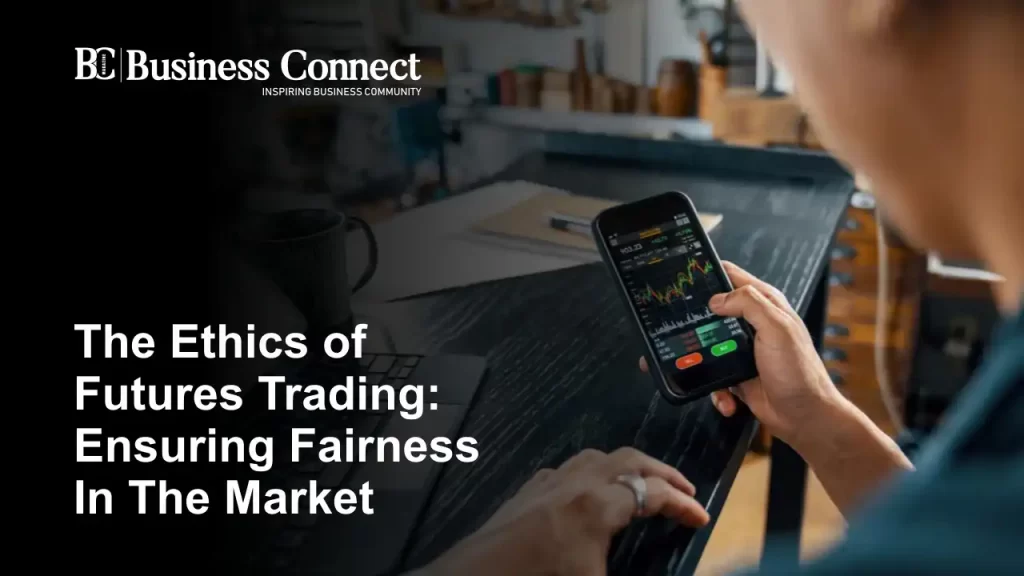The Ethics of Futures Trading: Ensuring Fairness in the Market
Introduction
Futures trading stands as a cornerstone of global financial markets, offering participants the opportunity to hedge risk, speculate on price movements, and discover future prices for commodities, currencies, and financial instruments. However, the ethical dimensions of futures trading are paramount in maintaining market integrity and investor confidence.
In this article, we delve into the ethical considerations that underpin futures trading, exploring historical perspectives, regulatory frameworks, and contemporary challenges to ensure fairness in the market. So, if you are looking for a website that connects you to investment education firms that can help you along your investment journey, consider visiting https://cryptoengine.app/.
Historical Perspective
The ethical landscape of futures trading has evolved significantly over time. Historically, futures markets lacked centralized regulation, leading to rampant manipulation and fraud. One infamous example is the “cornering” of the wheat market by James A. Patten in the early 1900s, where he amassed a significant position to artificially inflate prices and profit at the expense of other market participants. Such practices underscored the need for regulatory oversight to safeguard against unethical behavior and ensure market fairness.
Regulatory Framework
Today, futures trading is governed by a robust regulatory framework aimed at promoting transparency, integrity, and fairness. Regulatory bodies such as the Commodity Futures Trading Commission (CFTC) in the United States and the Financial Conduct Authority (FCA) in the United Kingdom oversee futures markets, enforcing rules designed to prevent fraud, manipulation, and abusive trading practices. These regulations cover areas such as position limits, reporting requirements, and market surveillance, providing a level playing field for all participants.
Insider Trading and Market Manipulation
One of the most significant ethical challenges in futures trading is insider trading and market manipulation. Insider trading involves trading based on material, non-public information, giving certain individuals an unfair advantage over others. Market manipulation encompasses a range of deceptive practices aimed at influencing prices to benefit specific traders or groups. Both insider trading and market manipulation undermine market integrity, eroding trust and confidence among investors.
Conflict of Interest
Conflicts of interest are inherent in futures trading, as market participants may have competing interests that could compromise fairness. For example, brokers may prioritize executing trades that generate higher commissions over those that best serve their client’s interests. Similarly, proprietary trading firms may engage in strategies that benefit their positions at the expense of other market participants. Managing conflicts of interest requires transparency, disclosure, and adherence to ethical standards to mitigate potential harm.
Fairness in Pricing and Execution
Fair pricing and execution are fundamental to the integrity of futures markets. Fair pricing ensures that market participants receive accurate and timely information about the value of the underlying assets, preventing distortions and ensuring efficient price discovery.
Fair execution requires orders to be executed promptly and at prices that reflect prevailing market conditions. However, challenges such as latency arbitrage and order prioritization can undermine fairness, necessitating technological innovations and regulatory interventions to address these issues.
Social Responsibility and Sustainability
In recent years, there has been a growing emphasis on social responsibility and sustainability in futures trading. Market participants are increasingly considering environmental, social, and governance (ESG) factors in their investment decisions, reflecting broader societal concerns about climate change, social justice, and corporate governance.
Ethical trading practices, such as avoiding investments in industries with poor labor practices or environmental records, can align financial interests with broader societal goals, promoting long-term sustainability and resilience in the market.
Conclusion
Ethical considerations are integral to the functioning of futures markets, ensuring fairness, transparency, and trust among market participants. By understanding the historical context, regulatory framework, and contemporary challenges of futures trading, stakeholders can navigate ethical dilemmas and uphold the highest standards of integrity. As technology continues to reshape the landscape of finance, ethical principles must remain at the forefront of decision-making, guiding behavior and fostering a culture of accountability and responsibility in futures trading.



